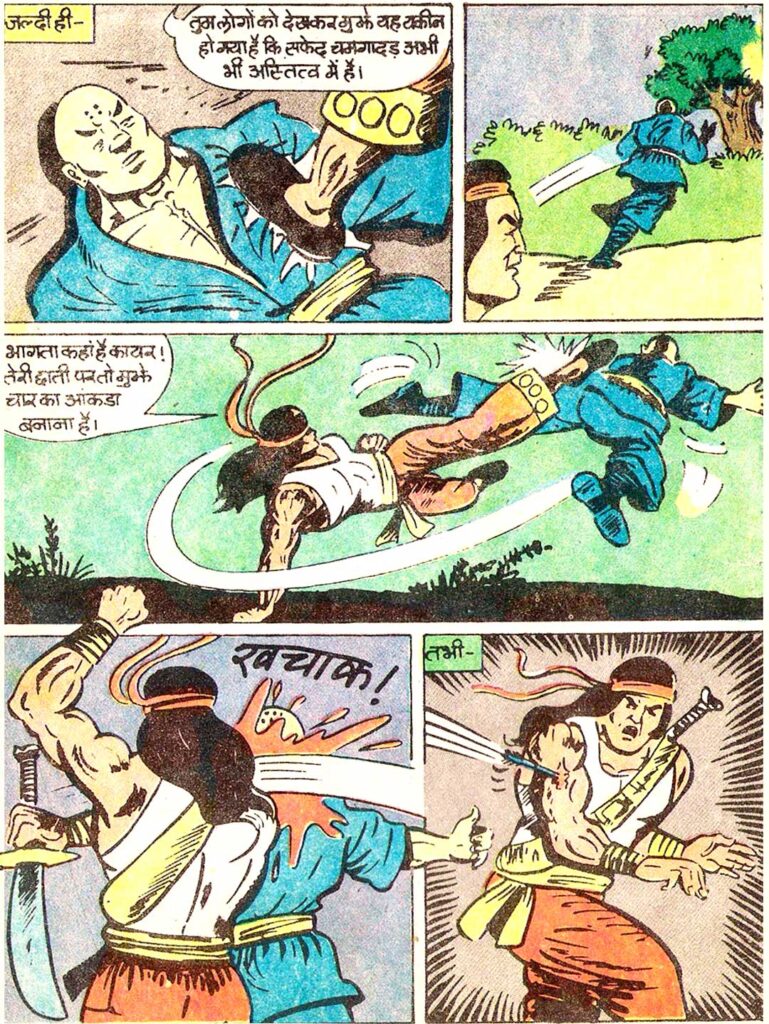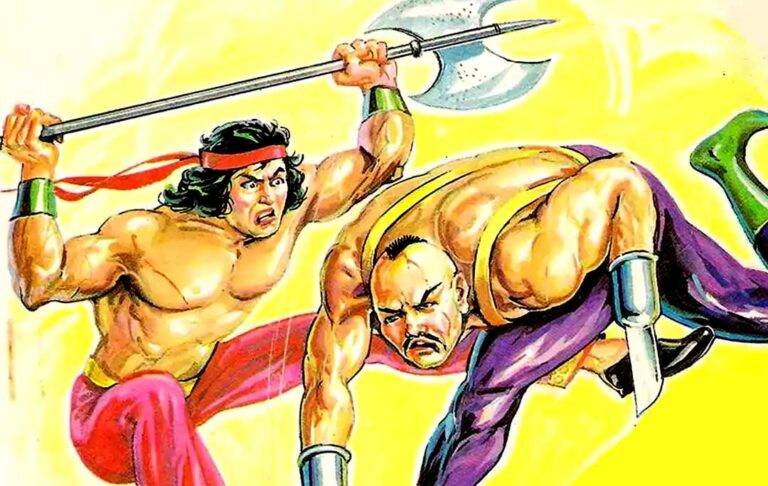The story revolves around Mahakal, whose mother was Indian, and father was Chinese. His father, Loo-Chee, was a karate champion in Hong Kong. However, some people turned Loo-Chee into a puppet, engaging in illegal activities behind his back. The tale begins with the comic “Mahakal and the Worshipers of Death,” where the daughter of the Indian intelligence agency’s Home Minister, belonging to a group in Hong Kong that calls themselves the White Bats, is imprisoned. Everyone wants to rescue her and bring her to India, but without damaging the relations between the two countries. That’s when they turn to retired police officer D.A. Jee Patwardhan, as he is the only one who can handle the job. And that’s when Mahakal comes into the picture.
Before becoming Mahakal, his name was Hu-Chee. He was born in China, but some people murdered his mother and sister and imprisoned him in a dungeon. There, he endured torture for days, with food arriving only every four days, all to make him obedient. However, when Patwardhan is sent on a mission to Hong Kong, he is also captured but manages to escape along with Mahakal. It’s during this escape that he witnesses Mahakal’s massacre of the entire gang. Meanwhile, Mahakal’s father is also killed, and Patwardhan brings him to India, where he lives a solitary life in the mountains. He had experienced so much pain that he kept love at bay, considering himself as hard as a stone. When Vasundhara confesses her love to him, he responds with a simmering answer: “Don’t try to bloom flowers in a stone, girl.” Mahakal has now become death, and life can’t touch him.

The comics were published by Radha Comics, which had previously released titles like Boona Jasus, Shaktiputra, Rudraal, and Janbaaz Jwala. The author behind these creations is Vatsala Kaushik. A special issue featuring Mahakal and Shaktiputra had also been released, titled “The Ghatoch Murder.”
Some of the published comic titles featuring Mahakal include “Mahakal and the Worshipers of Death,” “The Signature of Death,” “The Inferno of Death,” “Son of Loo Chee,” and “Limilanchu.
